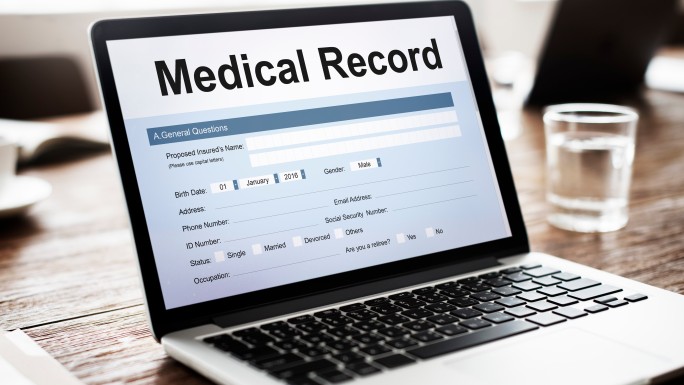Must have features of IWRS system
When it comes to clinical trials and pharmaceutical research, the integration of advanced technologies has become crucial to enhance the efficiency, accuracy, and compliance of study processes. One such popular technological tool is the Interactive Web Response System (IWRS).
To ensure the seamless conduct of clinical trials and maintain the integrity of research outcomes, certain must-have features are imperative in an IWRS system. Let's go deeper into each element, its benefits, and some considerations for implementing the system
What is IWRS system
The Interactive Web Response System (IWRS) is a critical component in the realm of clinical trials and pharmaceutical research. Operating through a web-based interface, IWRS facilitates the randomization of participants into different treatment groups, ensuring an unbiased distribution that is essential for the integrity of the study. This interactive system allows for real-time management, enabling researchers to respond dynamically to the evolving needs of the trial.

Importantly, IWRS plays a key role in maintaining the blinding of the study, preserving the confidentiality of treatment assignments, and minimizing potential bias. By providing a streamlined and efficient method for participant allocation, IWRS contributes to the reliability and validity of clinical trial outcomes, ultimately advancing the scientific understanding of new interventions and treatments.
Must-Have Features
Randomization Capabilities
Randomization is a fundamental aspect of clinical trials, and an IWRS system must possess robust capabilities to ensure the unbiased assignment of participants to different treatment groups. The system should employ sophisticated algorithms for randomization, promoting the equitable distribution of participants and minimizing selection bias.
Drug Supply Management
Efficient drug supply management is crucial for the success of clinical trials. The IWRS system should track and manage drug inventory, ensuring that each study site has an adequate and accurate supply of investigational products. This feature helps prevent shortages or overages, contributing to the smooth conduct of the trial.
User Access Control
Security is paramount in clinical research, and an IWRS system must incorporate robust user access control measures. This ensures that only authorized personnel have access to sensitive information and functionalities within the system. User roles and permissions should be clearly defined to maintain data integrity and confidentiality.
Real-Time Data Monitoring
Real-time data monitoring capabilities enable researchers to track the progress of the trial instantaneously. An effective IWRS system should provide real-time insights into participant randomization, drug supply status, and other key metrics. This feature empowers researchers to make timely decisions and address any issues promptly.
Integration with EDC Systems
Seamless integration with Electronic Data Capture (EDC) systems is essential for streamlined data management in clinical trials. An IWRS system should be able to exchange data seamlessly with EDC platforms, minimizing manual data entry errors and ensuring the consistency and accuracy of trial data across systems.
Benefits of IWRS
Enhanced Trial Efficiency
One of the primary benefits of an Interactive Web Response System (IWRS) is the enhanced efficiency of clinical trials. The system automates and streamlines critical processes such as participant randomization and drug supply management. This automation not only reduces manual errors but also accelerates the pace of the trial, enabling researchers to conduct studies more efficiently and meet timelines effectively.
Improved Data Accuracy
IWRS contributes significantly to the improvement of data accuracy in clinical trials. Through real-time data monitoring and integration with Electronic Data Capture (EDC) systems, the likelihood of errors associated with manual data entry is minimized. The system ensures that the data collected is consistent, reliable, and up-to-date, enhancing the overall quality of trial data and supporting the validity of study outcomes.
Regulatory Compliance
Regulatory compliance is paramount in the pharmaceutical and clinical research industry. IWRS systems are designed to adhere to regulatory standards and guidelines. By maintaining accurate and auditable records of participant randomization, drug supply management, and trial progress, IWRS helps ensure that clinical trials comply with regulatory requirements. This not only facilitates the approval process but also instills confidence in regulatory authorities regarding the integrity of the study.
Challenges and Considerations
System Security
Implementing robust security measures is a critical consideration for IWRS systems. As these systems handle sensitive health data and play a pivotal role in clinical trials, ensuring data integrity and confidentiality is paramount. Challenges may arise in preventing unauthorized access, protecting against cyber threats, and maintaining compliance with data protection regulations. Rigorous security protocols, encryption mechanisms, and regular audits are essential to address these challenges and safeguard the integrity of clinical trial data.
Training Requirements
The successful utilization of IWRS systems relies on the competence of users. Adequate training is crucial to ensure that researchers, study coordinators, and other personnel are proficient in navigating the system, performing tasks such as participant randomization, and understanding the nuances of drug supply management. Challenges may emerge if there is a lack of comprehensive training programs, potentially leading to errors in system operation and data handling. Investing in thorough and ongoing training initiatives is essential to mitigate these challenges.
Cost Implications
Implementing and maintaining an IWRS system involves financial considerations that may pose challenges. The initial setup costs, including software development, integration with other systems, and hardware requirements, can be significant. Additionally, ongoing maintenance, user support, and potential upgrades contribute to the overall cost of utilizing IWRS. Balancing the benefits of enhanced trial efficiency and improved data accuracy against the associated costs is a crucial consideration for organizations involved in clinical research.
Conclusion
In conclusion, the indispensable role of an Interactive Web Response System (IWRS) in modern clinical trials is underscored by its must-have features, each contributing to the efficiency, accuracy, and compliance of the research process. As clinical research continues to advance, these features collectively elevate the IWRS system as an indispensable tool, facilitating not only the success of individual trials but also contributing to the broader scientific understanding of new treatments and interventions.






